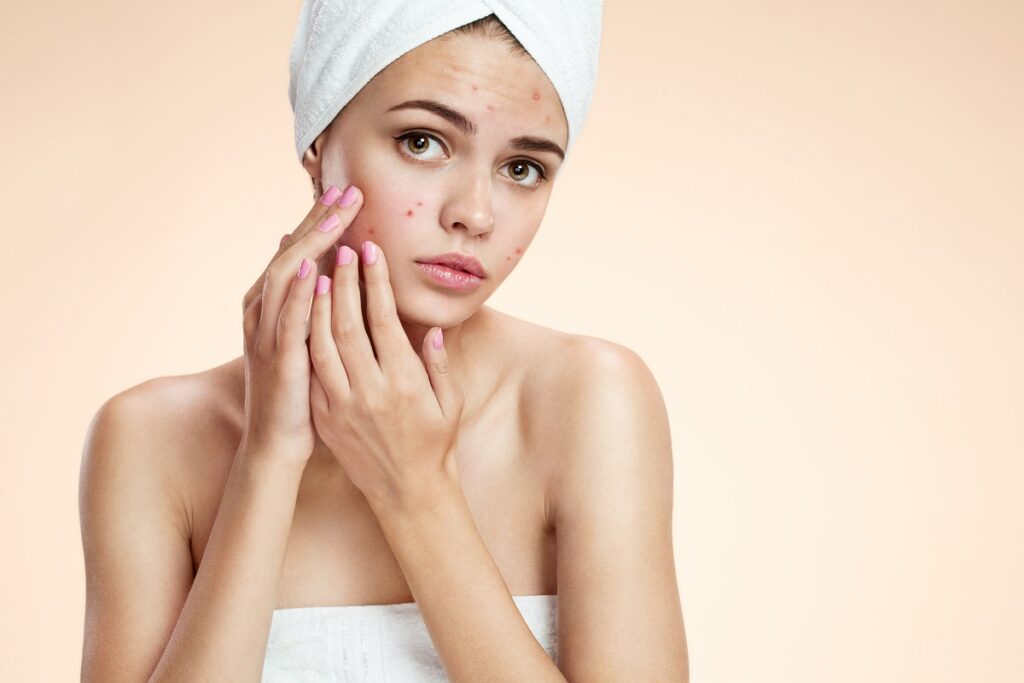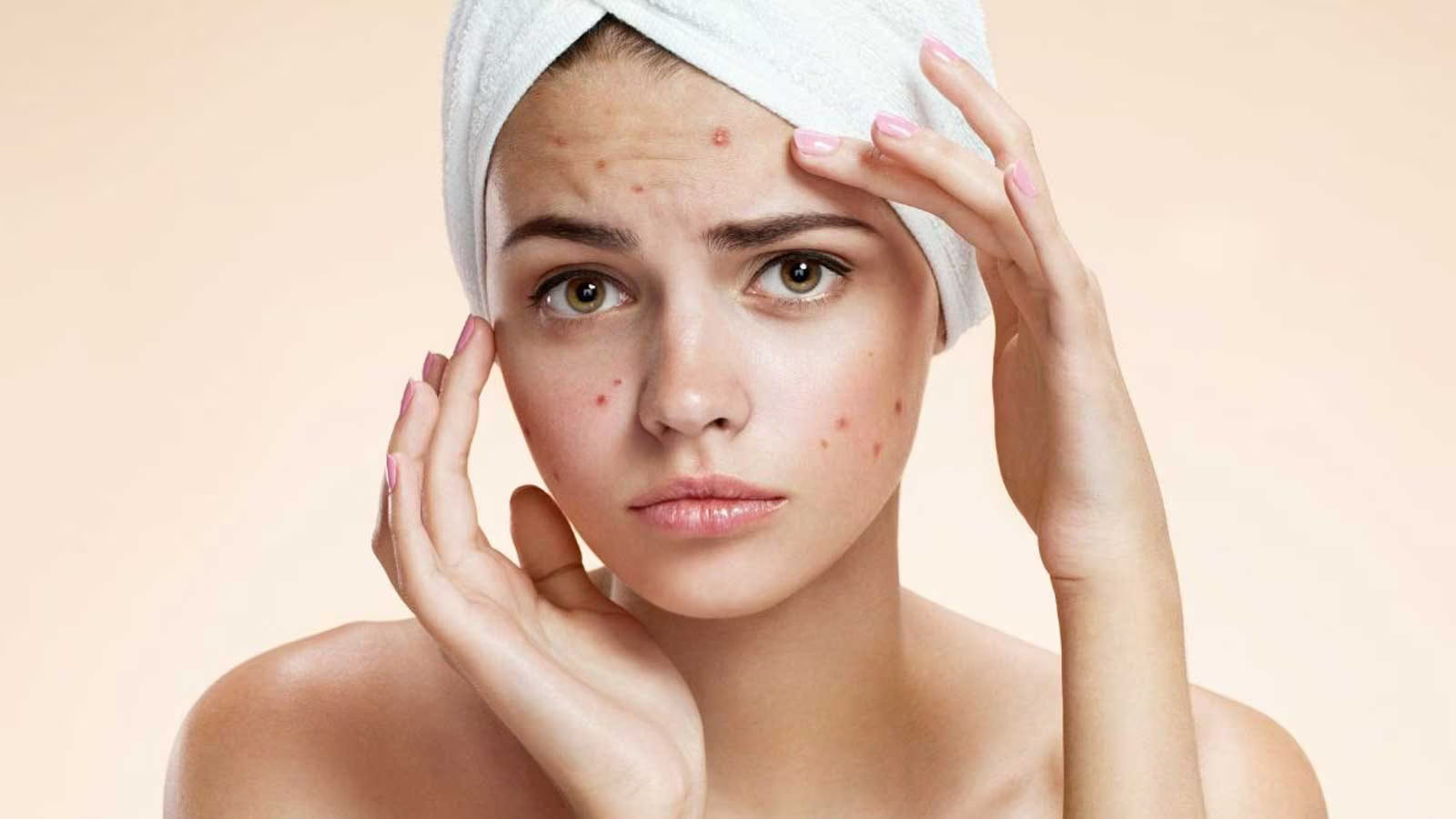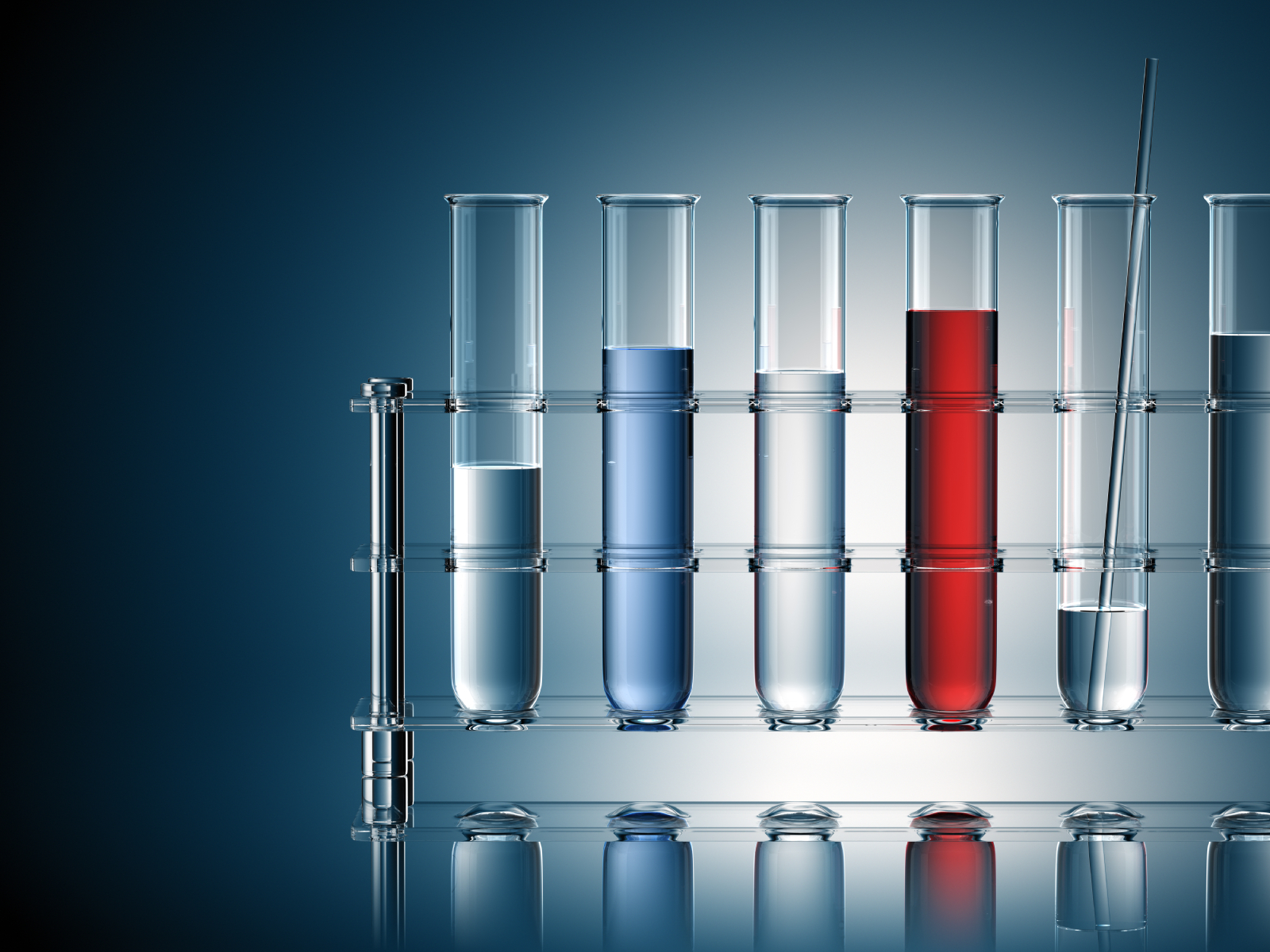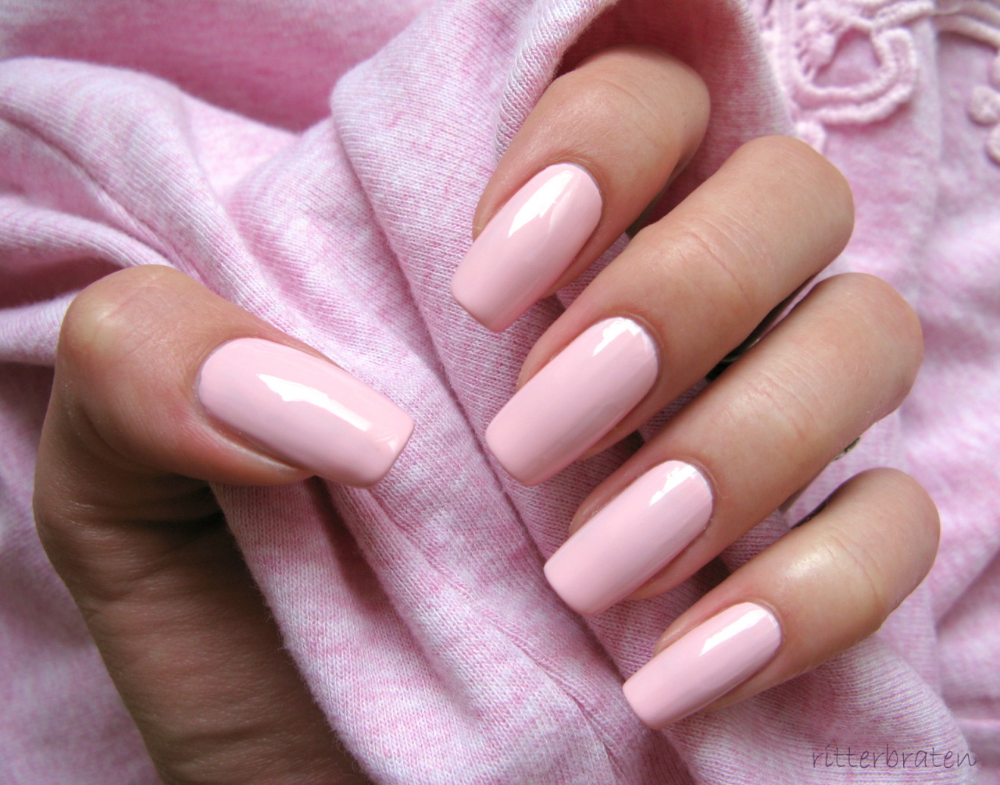What is Acne Dream Dictionary: Interpret Now!
A Guide to Unlocking the Meanings Behind Your Dreams
A guide to unlocking the meanings behind your dreams is crucial for anyone seeking to gain a deeper understanding of their subconscious mind. The Acne Dream Dictionary: Interpret Now! serves as a valuable resource, offering insights into various aspects of dreams that are often overlooked or misunderstood.
This comprehensive guide delves into the world of dream analysis, providing readers with a wealth of information on the symbolism and meanings associated with different dream elements. By exploring the subconscious mind through the lens of dreams, individuals can unlock hidden emotions, desires, and fears.
The Acne Dream Dictionary is particularly useful in helping readers decipher the symbolic language of their dreams. From common themes like snakes, spiders, and teeth to more obscure symbols such as umbrellas, clocks, and lighthouses, this guide provides an exhaustive list of interpretations that cater to diverse dream experiences.
One of the key aspects of this dictionary is its ability to break down complex dream scenarios into manageable and relatable parts. By doing so, readers are empowered to explore their own dreams in a safe and non-judgmental environment, leading to a heightened awareness of themselves and their thought patterns.
The Acne Dream Dictionary also acknowledges the emotional and psychological nuances that often accompany dreams. By examining the emotional tone and context surrounding dream events, readers can begin to unravel deeper layers of meaning that might otherwise remain elusive.
This guide is not just a theoretical exploration but rather an accessible tool for everyday application. Whether struggling with recurring nightmares or seeking insight into vivid daytime experiences, readers can harness the knowledge provided by this dictionary to better understand themselves and their place within the world.
Dreams and Their Connection to Acne
Exploring the Symbolism of Skin Conditions in Dreams
The subconscious mind often uses various symbols to convey emotions, thoughts, and unresolved issues, making dreams a valuable source for self-discovery. Acne, as a skin condition, has numerous meanings in the context of dreams, depending on their frequency, location, and characteristics.
Acne can be a manifestation of inner turmoil, reflecting stress, anxiety, or feelings of guilt and shame. It may symbolize a person’s struggle to maintain a flawless exterior, hiding their imperfections from others. The presence of acne in a dream could indicate an overwhelming sense of responsibility, pressure to conform, or the need for self-acceptance.
Acne on the Face When acne appears on the face, it often represents issues related to personal identity, self-image, or emotional expression. A pimple-filled forehead might symbolize feelings of being overwhelmed by thoughts and emotions, while a clear complexion could signify confidence and inner peace.
Frequency and Location:
- A recurring acne dream may indicate an underlying pattern or habit that needs to be addressed. For instance, waking up with acne might symbolize unresolved emotional baggage from past experiences.
- Acne on the back could signify suppressed desires, hidden fears, or unresolved issues related to trust and intimacy.
- A pimple on the nose may indicate a sense of being judgmental or overly critical about oneself.
Cleansing and Healing: In some cases, dreams featuring acne can also be linked to spiritual cleansing and healing. The process of washing away impurities, such as soap or water, might symbolize spiritual renewal, forgiveness, or a desire for inner purification.
The context in which the dream occurs is crucial when interpreting the symbolism of skin conditions like acne. Consider the emotions you experience during the dream, your personal associations with skin health, and any other events that may be influencing your subconscious mind at the time.
By exploring the depth and complexity of acne dreams, individuals can gain a deeper understanding of their inner world, uncover unresolved issues, and develop strategies for self-improvement and spiritual growth.
Understanding Why Acne is a Common Theme in Nightmares
Acne in nightmares can be a manifestation of underlying emotional or psychological issues, serving as a symbolic representation of the individual’s struggles with self-image, confidence, and overall well-being.
The presence of acne in dreams often indicates feelings of inadequacy, shame, and guilt, which can stem from past experiences or current circumstances that have left an individual feeling unworthy or unclean. This can be particularly true for those who struggle with anxiety, low self-esteem, or body dysmorphia.
Acne in nightmares may also symbolize the fear of being exposed, rejected, or judged by others. The physical manifestation of acne on the skin serves as a metaphor for emotional vulnerability, making individuals feel like they are ‘on display’ and susceptible to criticism or ridicule.
In some cases, acne in dreams can be linked to stress, hormonal imbalances, or changes in one’s life that may be causing feelings of discomfort or unease. This could include major life transitions, relationship issues, or work-related pressures that have left individuals feeling overwhelmed and emotionally drained.
The location and severity of the acne in the dream can also provide insight into its underlying meaning. For instance, if the acne is severe and widespread, it may indicate a more intense emotional turmoil or a sense of being ‘consumed’ by one’s problems. In contrast, smaller areas of acne might represent isolated issues or minor setbacks that still require attention and resolution.
Furthermore, the act of trying to cover up or conceal the acne in the dream can be seen as an attempt to suppress or deny these underlying emotional struggles. This may suggest a need for individuals to confront their feelings head-on and engage with them in a more authentic way, rather than resorting to superficial coping mechanisms or avoidance techniques.
By exploring the themes and emotions associated with acne in nightmares, individuals can gain a deeper understanding of themselves and the underlying issues that are contributing to their distress. This newfound self-awareness can serve as a powerful catalyst for personal growth, healing, and transformation.
The Psychology Behind Acne Dreams
The Role of Unresolved Issues and Emotions on Your Mental State
The role of unresolved issues and emotions on one’s mental state is complex and multifaceted. It is well established in psychological literature that the repression or suppression of negative emotions, such as anger, sadness, and fear, can lead to a range of physical and emotional symptoms, including acne.
Acne is a common skin condition characterized by the occurrence of comedones (blackheads and whiteheads), papules, pustules, nodules, and cysts. While its causes are multifactorial, including hormonal fluctuations, genetics, and bacterial infections, research has shown that stress, anxiety, and emotional distress can exacerbate acne symptoms.
Unresolved issues and emotions can lead to increased cortisol levels, a hormone released by the adrenal gland in response to stress. Chronically elevated cortisol levels have been linked to an increase in sebum production, which can clog pores and contribute to acne development.
Furthermore, unresolved emotional issues can also lead to changes in eating habits, sleep patterns, and other lifestyle factors that may contribute to skin problems. For instance, individuals experiencing anxiety or depression may turn to comfort foods, leading to weight gain and increased insulin resistance, which can worsen acne symptoms.
Moreover, research has shown that emotional stress can also lead to inflammation in the body, which is a key contributor to acne development. When we experience stress, our immune system releases pro-inflammatory chemicals that can cause inflammation in the skin, leading to redness, swelling, and pain associated with acne.
In addition, unresolved issues and emotions can also impact an individual’s ability to manage their skin care routine effectively. For example, someone struggling with anxiety or depression may have difficulty adhering to a consistent skin care regimen, which can worsen acne symptoms.
Therefore, it is essential for individuals experiencing persistent acne to address underlying emotional and psychological issues. By working through unresolved emotions and developing healthier coping mechanisms, individuals may experience improvements in their mental state and a decrease in acne symptoms over time.
The Acne Dream Dictionary offers insights into the symbolic meaning of acne in dreams and its connection to the subconscious mind. According to this resource, acne can represent feelings of inadequacy, low self-esteem, or emotional turmoil. Interpreting acne dreams requires an understanding of one’s own personal symbolism and emotions associated with acne.
When interpreting acne dreams, consider the following questions: What does acne symbolize for me? How do I feel when I have acne in my waking life? What unresolved issues am I dealing with that may be contributing to my emotional state?
By exploring these questions and working through unresolved emotions, individuals can develop a better understanding of their mental state and its connection to acne. This increased self-awareness can lead to improved emotional regulation, healthier coping mechanisms, and, ultimately, clearer skin.
Analyzing the Relationship Between Anxiety and Skin-Related Nightmares
Skin-related nightmares can be a distressing and debilitating aspect of anxiety, affecting both physical and emotional well-being. The relationship between anxiety and skin-related nightmares is complex and bidirectional.
Anxiety can contribute to the development of skin-related nightmares through several mechanisms: stress-induced inflammation, heightened arousal, and maladaptive sleep patterns. Stress can lead to increased production of pro-inflammatory cytokines, which exacerbate acne symptoms and may trigger vivid dreams or nightmares related to skin issues.
Moreover, anxiety can impair sleep quality, leading to reduced slow-wave sleep (SWS) and rapid eye movement (REM) sleep duration. This disruption in sleep patterns can increase the likelihood of experiencing nightmares, including those related to skin problems. SWS is essential for memory consolidation, emotional regulation, and overall brain health.
On the other hand, skin-related nightmares can also perpetuate anxiety by fostering a sense of hypervigilance and fear of recurrence. The distressing nature of these nightmares can lead to avoidance behaviors, social withdrawal, and decreased self-esteem, creating a vicious cycle of anxiety and skin-related concerns.
The Acne Dream Dictionary is an interpretive resource that suggests various meanings associated with acne in dreams. For instance, experiencing acne in a dream may symbolize feelings of guilt, shame, or self-consciousness about physical appearance. It could also represent underlying emotional conflicts or unresolved issues related to personal hygiene and body image.
The dictionary further proposes that skin-related nightmares might be indicative of deeper concerns, such as an overwhelming sense of responsibility, feeling overwhelmed by life’s demands, or experiencing a sense of being “dirtied” by one’s own mistakes. It may also signal a need for self-reflection, self-care, and emotional cleansing.
By acknowledging the intricate relationship between anxiety and skin-related nightmares, individuals can take proactive steps towards addressing these issues. Engaging in stress-reducing activities, practicing relaxation techniques, such as deep breathing or progressive muscle relaxation, can help mitigate anxiety’s impact on sleep and overall well-being.
Moreover, exploring the underlying causes of skin-related concerns through cognitive-behavioral therapy (CBT) or other forms of talk therapy can help individuals develop more adaptive coping strategies and improve their self-image. This approach can also involve addressing body image issues, building self-esteem, and developing a more compassionate relationship with oneself.
Lastly, seeking support from loved ones, friends, or mental health professionals is essential in managing anxiety-related skin concerns. By acknowledging the interplay between anxiety and skin-related nightmares, individuals can break free from the cycle of distress and work towards achieving improved emotional and physical well-being.

Interpreting Specific Types of Acne Dreams
Cystic Acne: A Sign of Deep-Seated Fears and Insecurities
Cystic acne is a severe form of acne that can be physically and emotionally debilitating. It is characterized by large, painful cysts that can leave deep scars and permanent damage to the skin. While it often affects the face, it can also occur on other areas of the body such as the back, chest, and shoulders.
Research suggests that Cystic acne may be linked to underlying psychological factors, including deep-seated fears and insecurities. These emotions can manifest physically through stress hormones, which can increase inflammation and oil production in the skin, leading to breakouts. This connection highlights the complex interplay between physical and emotional health.
The mind-body connection is a key area of interest for psychologists and dermatologists who study acne. They have found that individuals with Cystic acne often have higher levels of stress hormones such as cortisol, which can contribute to inflammation and oil production in the skin.
Acne dream dictionary suggests that when you experience recurring dreams about acne, it may be a sign that you are struggling with insecurities or fears in your waking life. These emotions can manifest as physical symptoms, including Cystic acne. Here are some possible interpretations of acne-related dreams:
- Bursting cysts: This dream may symbolize feelings of being overwhelmed by stress or anxiety.
- Pimples and blackheads: These skin imperfections can represent insecurities about one’s appearance or self-worth.
- Aching skin: This dream may indicate physical or emotional discomfort due to unresolved issues or unexpressed emotions.
The key takeaway from these interpretations is that Cystic acne may be a manifestation of underlying psychological factors. By addressing these emotional concerns, individuals can potentially improve their physical symptoms and overall well-being.
Pustules and Blackheads: Representations of Internal Conflict and Tension
Pustules are small bumps on the skin that contain pus, which is a mixture of bacteria and white blood cells. They are often caused by clogged pores and can be painful to the touch.
In the context of dreams, pustules may represent internal conflict or tension. They can symbolize emotional distress, anxiety, or stress that has built up over time. The appearance of a pustule in a dream may indicate that you are experiencing feelings of being overwhelmed or stuck in a difficult situation.
Blackheads, on the other hand, are small bumps that occur when pores become clogged with oil and dead skin cells. Unlike pustules, blackheads do not contain pus but instead have a dark appearance due to oxidation of the trapped substances.
In dreams, blackheads may represent feelings of being stuck or stagnant in life. They can also symbolize unresolved emotional issues that need attention and resolution. The presence of blackheads in a dream may suggest that you are feeling disconnected from your emotions or struggling with self-care.
The combination of pustules and blackheads in a dream may indicate that you are experiencing both internal conflict and feelings of being stuck or stagnant. This could be a sign that you need to address underlying emotional issues and take steps towards personal growth and resolution.
It’s also worth noting that the size, shape, and color of pustules and blackheads in dreams can hold specific meanings. For example, large pustules may represent intense emotional turmoil, while small blackheads may indicate minor emotional disturbances.
To better understand what your dream is trying to communicate, consider reflecting on recent events or emotions that may be contributing to the appearance of these skin issues. Ask yourself questions like:
- What am I feeling anxious or stressed about in my waking life?
- Are there any unresolved emotional issues that need attention?
- How can I take steps towards resolving conflicts and improving self-care?
By exploring your emotions and recent experiences, you may gain a deeper understanding of what your dream is trying to convey and how you can apply the insights in your waking life.
In conclusion, pustules and blackheads in dreams can represent internal conflict, tension, and feelings of being stuck or stagnant. By paying attention to the details of your dream and exploring your emotions, you can gain a deeper understanding of what your subconscious is trying to communicate and make positive changes in your life.
Bacterial Acne: A Reflection of Feelings of Contamination or Guilt
Bacterial acne can be a reflection of feelings of contamination or guilt, suggesting that an individual may be harboring negative emotions or unresolved issues.
On a deeper level, bacterial acne can symbolize a sense of inner turmoil, where the skin represents the outer layer of self, and any underlying problems manifest as breakouts on the surface.
The presence of bacteria in acne can also indicate feelings of shame, guilt, or inadequacy that are festering beneath the surface.
Moreover, the tendency to pick or squeeze pimples may be a coping mechanism for emotional pain or distress, temporarily alleviating symptoms but ultimately exacerbating them.
In some cases, bacterial acne can serve as a manifestation of unconscious guilt over past actions or perceived wrongdoings.
This can lead to an unresolved sense of remorse that is “hidden” beneath the skin, manifesting as chronic breakouts or persistent infections.
From an analytical perspective, the specific type of bacteria involved in acne can also offer insights into underlying psychological dynamics.
Pseudomonas aeruginosa, for instance, may indicate a sense of feeling overwhelmed and unable to cope with life’s demands.
On the other hand, Staphylococcus aureus might suggest an undercurrent of aggression or competitiveness that is driving emotional turmoil.
Ultimately, bacterial acne serves as a metaphor for the ongoing battle between conscious awareness and unconscious impulses, highlighting the need for self-reflection and introspection to address underlying issues.
By acknowledging and addressing these emotional imbalances, individuals can work towards healing both their inner turmoil and physical skin, restoring balance and promoting overall well-being.
Working with Your Acne Dreams for Personal Growth
Using Nightmare Analysis to Identify Areas for Self-Improvement
Nightmare analysis is a technique used to explore the unconscious mind, revealing hidden fears, desires, and motivations. By examining the content of nightmares, individuals can gain insight into their own psychological processes and identify areas for self-improvement. The Acne Dream Dictionary: Interpret Now! serves as a comprehensive resource for decoding nightmare symbolism.
According to Nightmare Theory, nightmares are a manifestation of our psyche’s attempt to process unresolved emotions, conflicts, or repressed memories. By analyzing the elements present in a nightmare, one can uncover underlying psychological dynamics that may be contributing to distressing thoughts, feelings, or behaviors.
The Acne Dream Dictionary categorizes various symbols and imagery commonly found in nightmares, including acne itself, which is often associated with shame, self-consciousness, or perceived flaws. Interpreting these symbols can help individuals recognize patterns of negative self-talk, low self-esteem, or anxiety related to physical appearance.
To use Nightmare Analysis for self-improvement, follow these steps: first, maintain a nightmare journal to record and describe your dreams in detail. Pay particular attention to recurring themes, emotions, and sensations experienced during the nightmare. Next, consult the Acne Dream Dictionary or other resources to decipher the symbolic language of your nightmares.
Once you have identified key symbols and their meanings, reflect on how they relate to your waking life. Ask yourself questions such as: “What is my relationship with physical appearance?” “Do I feel like I’m struggling with self-acceptance or low self-esteem?” “How can I challenge these negative thoughts and behaviors?” By exploring the unconscious mind through nightmare analysis, individuals can develop a greater understanding of their motivations and work towards positive change.
Remember that Nightmare Analysis is not a substitute for professional therapy or counseling. However, it can serve as a powerful tool for personal growth and self-awareness when used in conjunction with traditional therapeutic approaches.
Cultivating Emotional Awareness and Intelligence Through Dream Work
Cultivating emotional awareness and intelligence is a vital aspect of personal growth and self-awareness. It involves recognizing and understanding one’s emotions, values, and motivations to make informed decisions and navigate life’s challenges effectively.
Dream work offers a unique opportunity to tap into this process by exploring the symbolism and metaphors that arise from our subconscious mind during sleep. By analyzing and interpreting our dreams, we can gain valuable insights into our thoughts, feelings, and experiences, which can be used to enhance emotional awareness and intelligence.
The Acne Dream Dictionary: Interpret Now! is a comprehensive resource for understanding the symbolic language of dreams. It provides a detailed guide to deciphering various dream symbols, including acne, which may appear in dreams as a manifestation of unresolved issues or emotional turmoil.
According to the dictionary, acne in a dream can symbolize feelings of shame, guilt, or self-consciousness related to past mistakes or unexpressed emotions. It may also represent an internal struggle with inner imperfections or a fear of being rejected or judged by others.
Interpreting dreams about acne requires considering various factors, such as the context in which it appears, the intensity and duration of the dream, and any associated emotions or thoughts. By exploring these elements, individuals can gain a deeper understanding of their emotional state and develop greater self-awareness.
Cultivating emotional awareness through dream work involves developing a non-judgmental attitude towards oneself and one’s experiences. This requires acknowledging and accepting the complexity of human emotions, rather than trying to suppress or deny them.
Through regular practice of dream analysis and interpretation, individuals can develop greater emotional intelligence by recognizing patterns and themes in their dreams, which may be related to unresolved issues or areas for personal growth.
The Acne Dream Dictionary: Interpret Now! provides a valuable tool for this process, enabling individuals to explore the symbolism of acne in their dreams and gain insights into their emotional state. By applying this knowledge and integrating it into daily life, individuals can cultivate greater emotional awareness and intelligence, leading to improved relationships, decision-making, and overall well-being.
In conclusion, cultivating emotional awareness and intelligence through dream work with the Acne Dream Dictionary: Interpret Now! offers a unique opportunity for self-discovery and personal growth. By exploring the symbolism of acne in dreams and developing a deeper understanding of one’s emotions, individuals can develop greater emotional intelligence and live more authentic, meaningful lives.
- Bus Into The City Dream Meaning: What Does Taking A Bus Into The City Mean In Your Dream? - September 16, 2024
- Bull Dream Meaning: What Does A Bull Symbolize In Your Dream? - September 15, 2024
- Bulletproof Vest Dream Meaning: What Does A Bulletproof Vest Represent In Your Dream? - September 15, 2024







